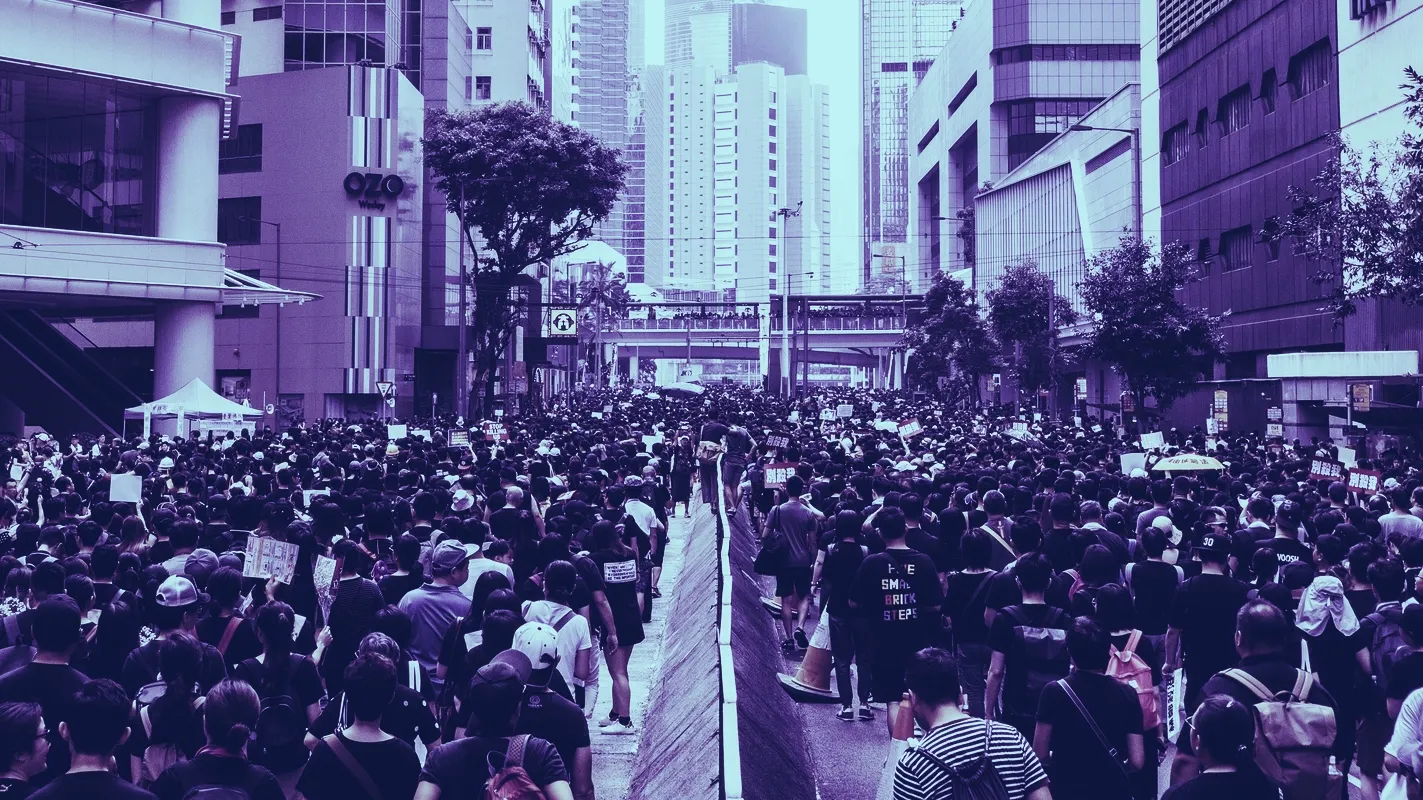Hong Kong protestors, spooked by a vulnerability in encrypted messaging app Telegram—which exposed users’ phone numbers to security agencies—have turned to peer-to-peer networking apps.
The protests in Hong Kong started in March, and focus on a bill, pushed by China, that would let criminals be expedited from Hong Kong to China. Protestors see this as a threat to democracy and have taken to the streets to air their grievances.
So far, protestors in Hong Kong have been using Telegram groups to coordinate efforts as they continue to rally against Chinese control. The app has been used to discuss tactics and warn other protestors of the latest methods employed by the police against protestors, such as spreading colored tear gas to mark protestors for arrest. But the Chinese government was able to use a bug that could allow it to get hold of users’ phone numbers, helping them to disrupt communications.
Telegram since fixed the exploit after Hong Kong protestors pushed on the app to cloak their identities, according to a report by Reuters, on Friday. But it was too late. Many protesters had abandoned the app in favor of more unconventional means of communication.
In the last few weeks, Bridgefy and FireChat, two peer-to-peer messaging apps, have boomed in popularity in the region.
Bridgefy is an offline messaging app that creates a mesh network of its users’ mobile phones via bluetooth. This allows them to send messages from phone to phone, until they reach their destinations.
Bridgefy, according to AppTrace, is currently the is the sixth most popular app in Hong Kong, and was the most popular app in the country at certain times during the middle of August. This is a sharp increase considering that, at the beginning of last month, Bridgefy ranked just #153.
On the other side of the world, Bridgefy also surged in rankings in the Bahamas—it is now the 59th most popular app—coinciding with the deadly Hurricane Dorian.
FireChat is also highly popular and works in much the same way as Bridgefy. Its iOS app was the tenth most downloaded app in Hong Kong in the middle of August according to AppTrace, though, as of yesterday, it is the #58 most popular app. The Android version was the fourteenth most popular app in the same time period, though it is now the 52nd most popular app.
With the internet so heavily controlled in China—and largely centralized across the world—is it time for peer-to-peer technologies to have another moment in the sun?

